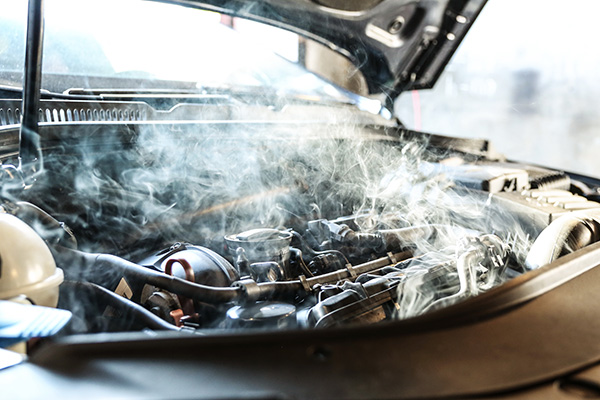
When you're cruising down the road and your engine starts to overheat, it's more than just an inconvenience; if not addressed promptly, it can lead to serious damage. Knowing the signs of an overheating engine can save you money and a lot of stress. But how can you tell if your engine is overheating? Let's dive into the key indicators and what you should do if you find yourself in this hot situation.
Signs Your Engine Is Overheating
1. Temperature Gauge or Warning Light
The most obvious sign of an overheating engine is the temperature gauge on your dashboard creeping into the red zone. Today's cars are equipped with warning lights that will illuminate when your engine is getting too hot. Pay attention to these indicators, as they are your first line of defense against severe engine damage.
2. Steam or Smoke
If you see steam (often mistaken for smoke) coming from under the hood, pull over immediately. This is a clear sign that your engine is overheating, and continuing to drive can cause irreparable damage. The steam is usually caused by coolant escaping from the cooling system, hitting hot engine parts, and turning into vapor.
3. Strange Smells
An overheating engine can produce strange odors. If you smell something sweet, it could be coolant leaking. A burnt odor might indicate that your oil is overheating or that some other part of your engine is getting too hot. Either way, unusual smells should prompt you to check your engine as soon as possible.
Common Causes of Engine Overheating
1. Low Coolant Levels
Coolant is essential for keeping your engine at the right temperature. If the coolant level is too low, it can't effectively do its job. Regularly check the coolant levels in the system and top up as necessary, using the correct type of coolant for your vehicle.
2. Faulty Radiator or Thermostat
The radiator and thermostat play crucial roles in regulating your engine's temperature. A faulty radiator can prevent the coolant from dispersing heat properly, while a malfunctioning thermostat can fail to regulate the flow of coolant. Both issues can cause your engine to overheat and need to be addressed by a professional.
3. Water Pump Failure
The water pump circulates coolant throughout the engine. If it fails, the coolant won't move as needed, leading to overheating. Signs of a failing water pump include coolant leaks, a whining noise from the front of the engine, and steam coming from the radiator.
What to Do If Your Engine Overheats
1. Pull Over Safely
As soon as you notice any signs of overheating, you must pull over safely and turn off the engine. Continuing to drive can cause severe damage, including warped engine components and blown head gaskets. Let your engine cool down before attempting to check under the hood.
2. Check Coolant Levels
Once the engine has cooled down, carefully check the coolant levels. If it's low, add coolant or water (as a temporary measure) to bring it back to the proper level. Be cautious when opening the radiator cap, as pressure build-up can cause hot coolant to spray out.
3. Call for Help
If adding coolant doesn't solve the problem or if you're unsure what to do, call for professional help. Driving an overheating car can lead to extensive and costly repairs. It's better to be safe and take your car to a trusted mechanic like Complete Automotive Repair Specialists.
Preventive Measures
1. Regular Maintenance
One of the best ways to prevent overheating is through regular maintenance. Schedule routine check-ups with your mechanic to ensure your cooling system is in top condition. This includes checking coolant levels, inspecting hoses, and ensuring the radiator and thermostat are functioning correctly.
2. Keep an Eye on the Temperature Gauge
Make it a habit to glance at your temperature gauge while driving, especially during hot weather or long drives. Early detection can prevent more severe issues down the road.
Is your car showing signs of overheating? Let Complete Automotive Repair Specialists handle it with our professional and reliable service. Book your visit today and prevent costly repairs tomorrow!